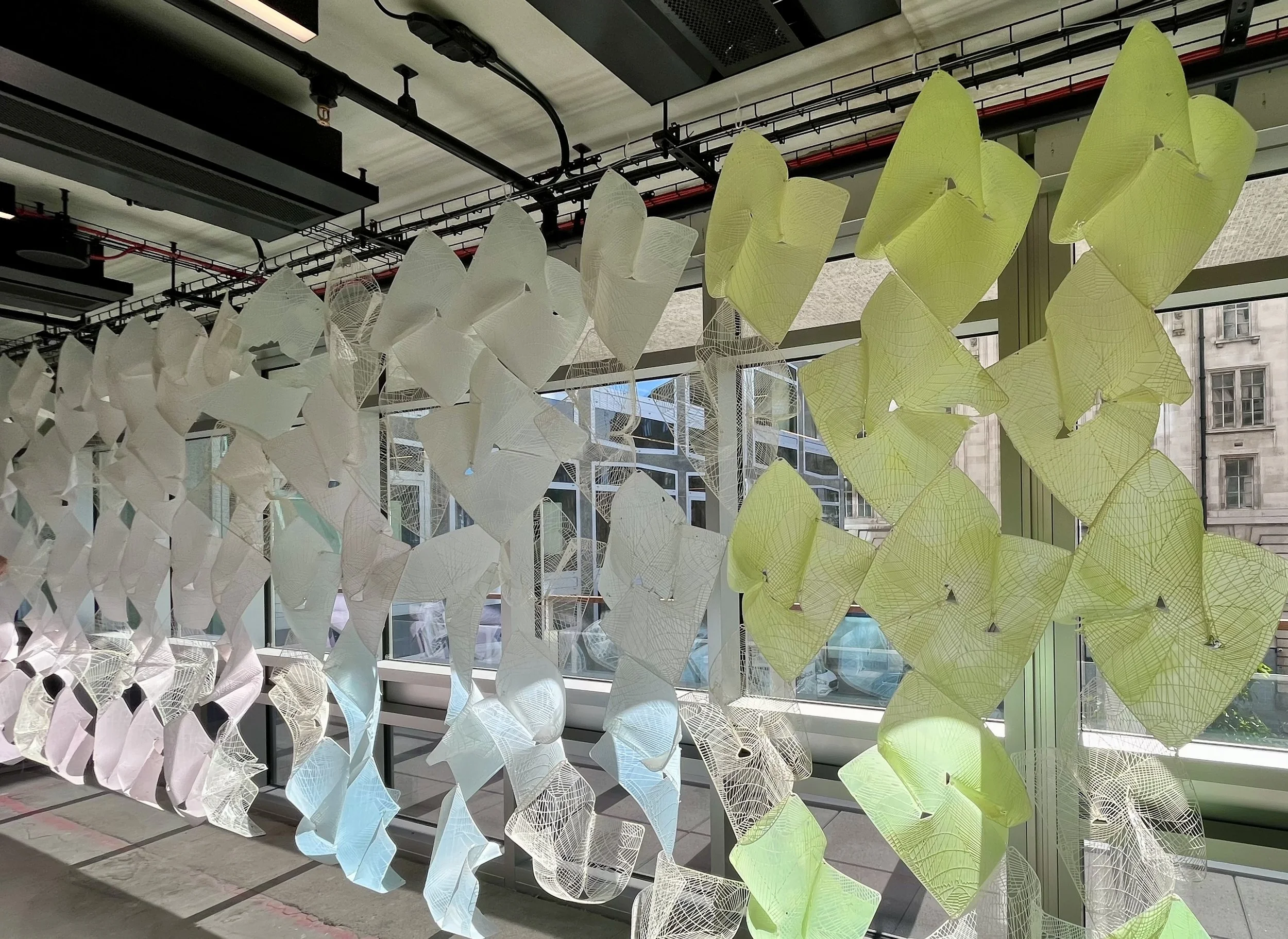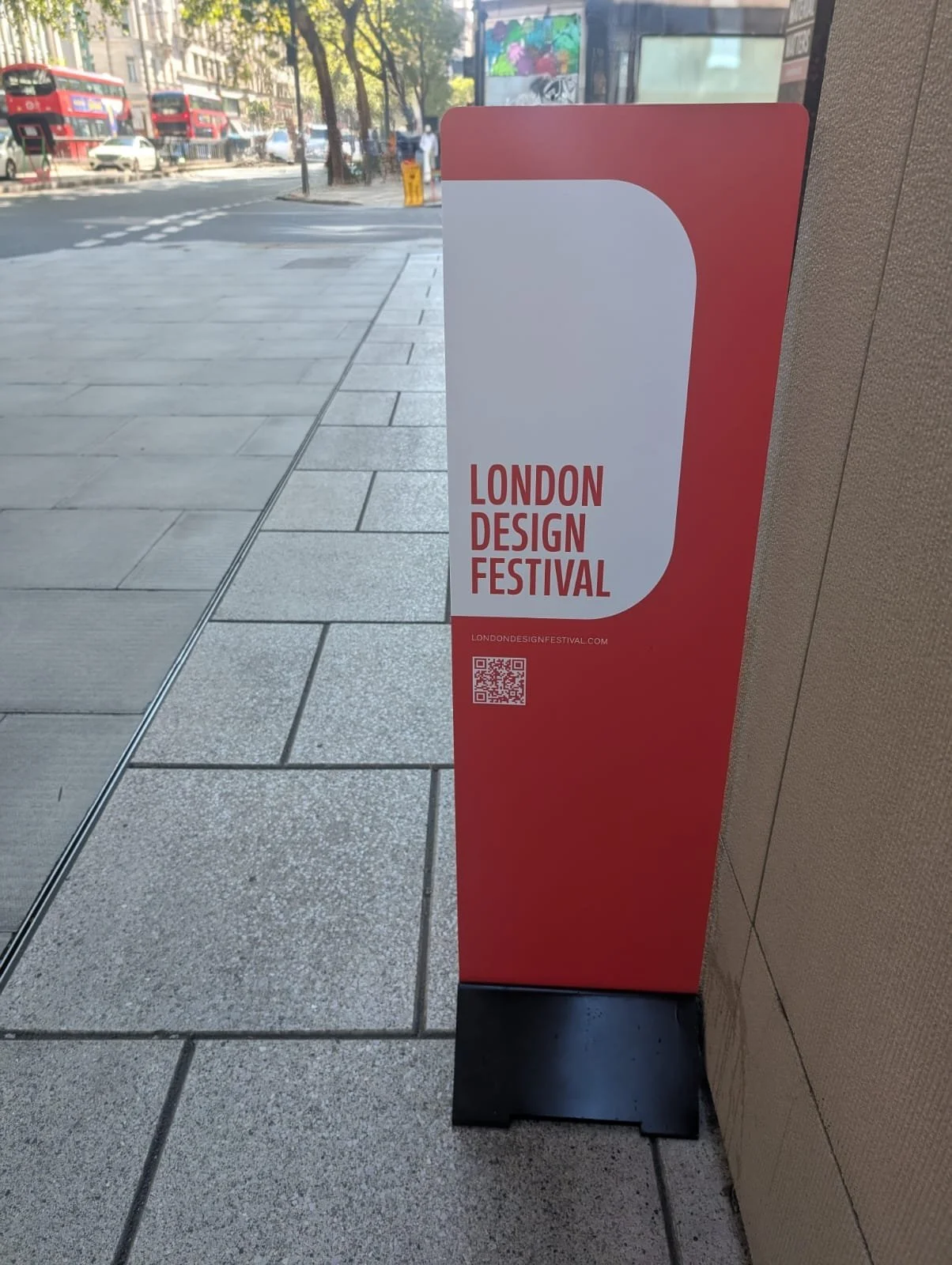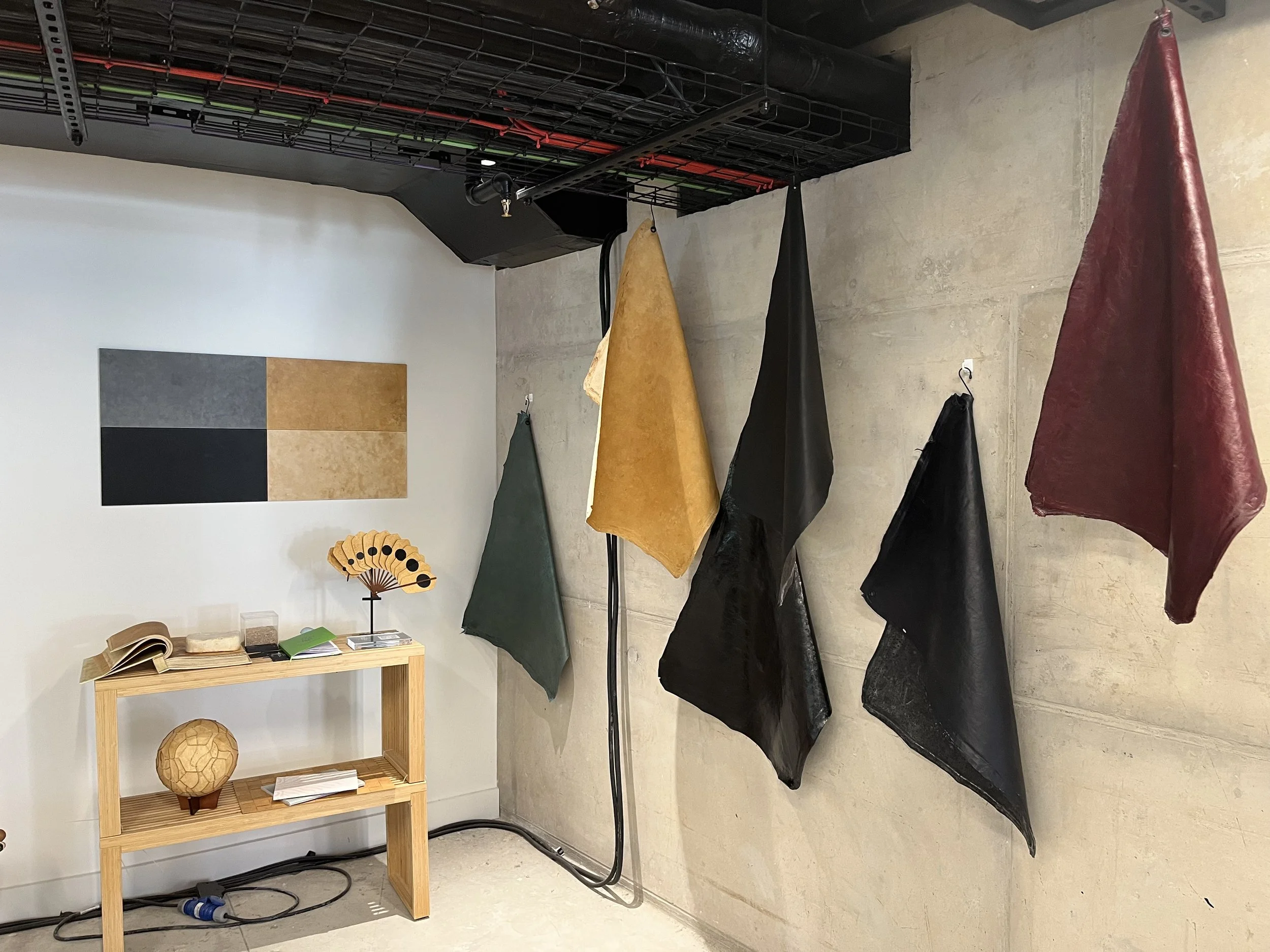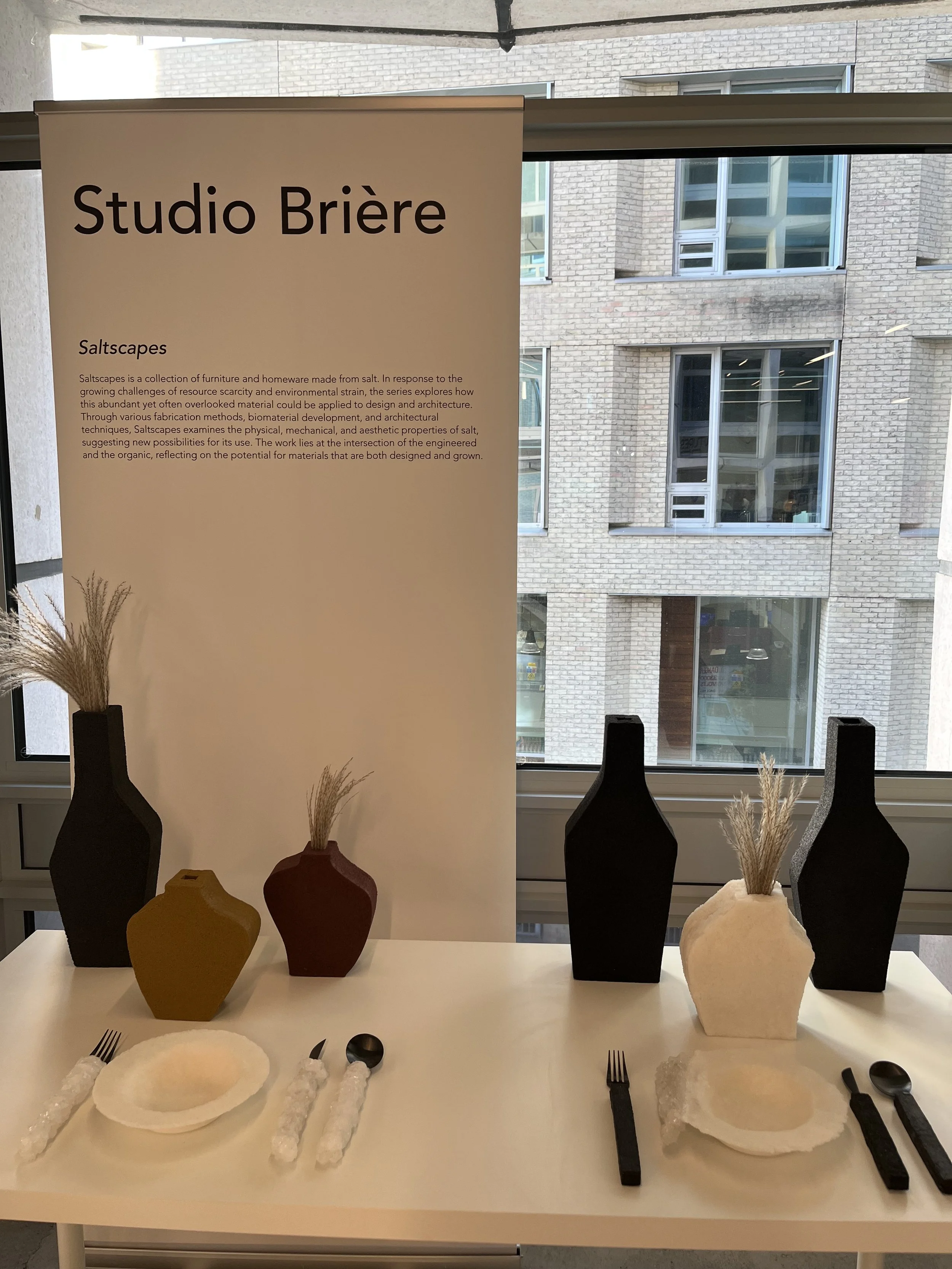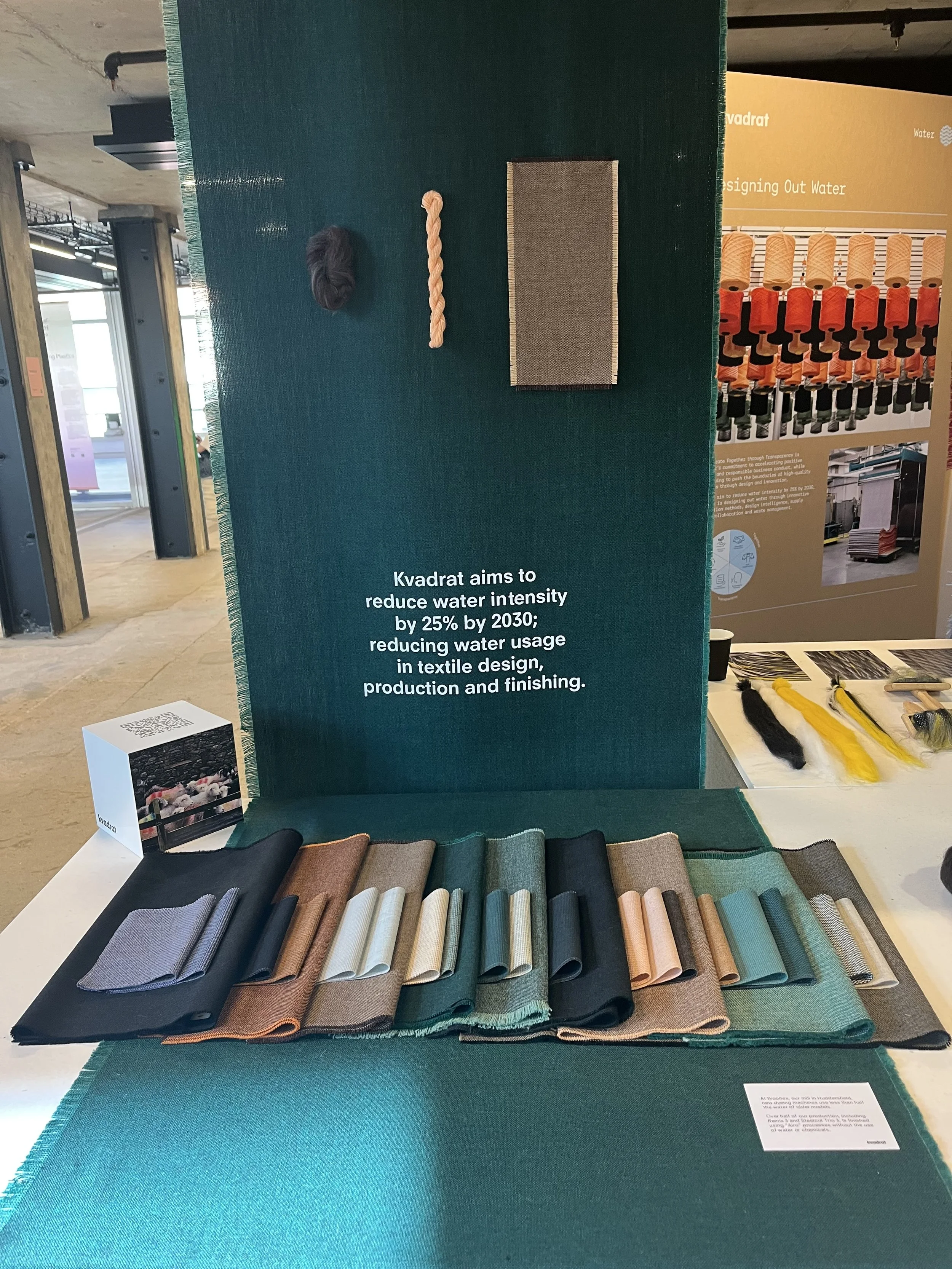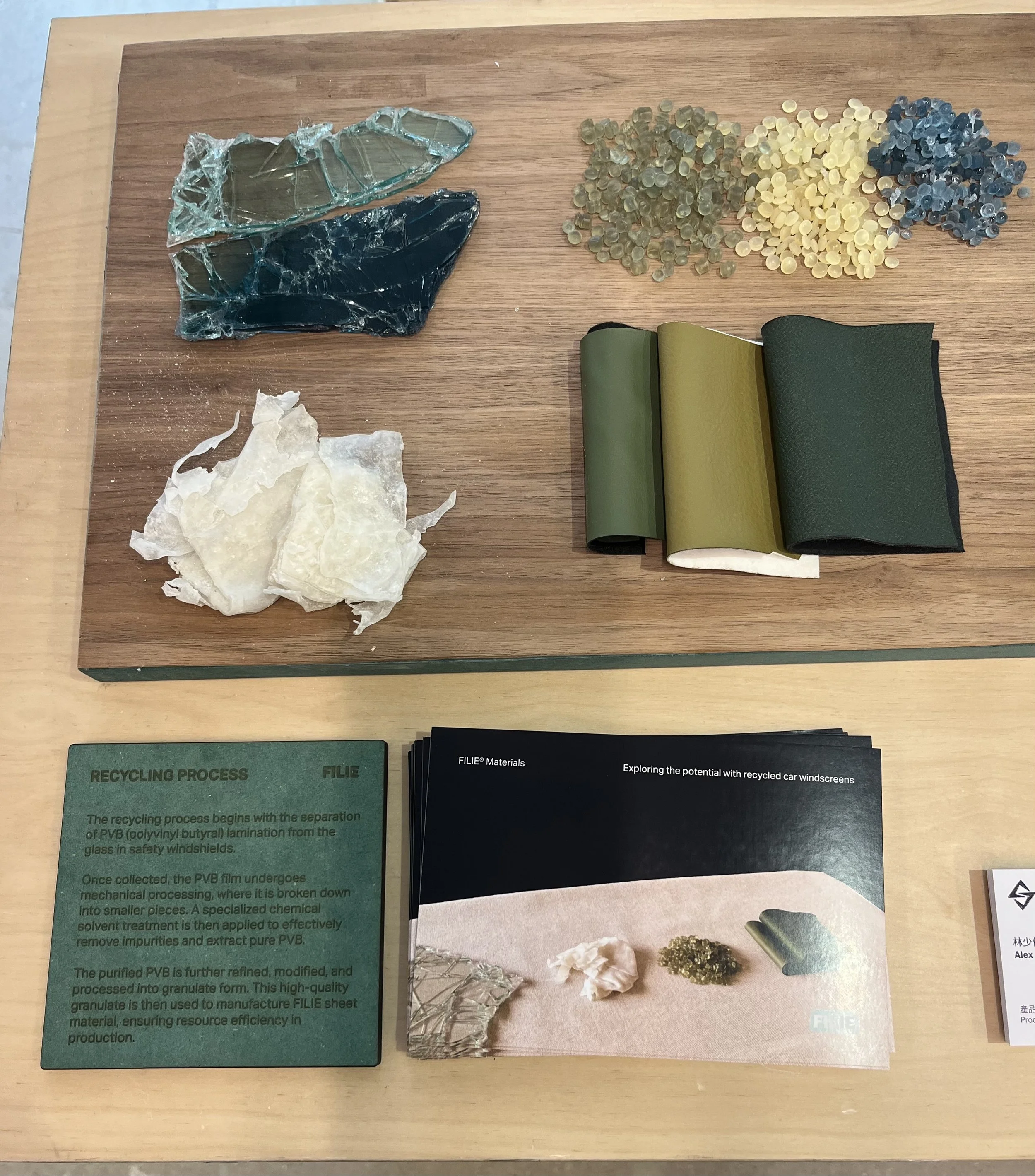Material Matters
In a world that is ever more conscious of its impact on the climate, the understanding and the use of sustainable materials becomes vital.
Material Matters took place in London this year on 17-20 September, as part of London Design Festival 2025. A platform focused on the role and impact materials have on the environment, it is dedicated to circular design and bringing stakeholders together to raise awareness and inspire them.
Along with its sister fair in Copenhagen during 3Daysof Design (see UFM's report on the 3DaysofDesign here), Material Matters showcased forward thinking brands, which place sustainability at the heart of what they do. On top of that, a thought provoking programme of speakers and discussions meant that visitors left considering materials in a new way, such as ‘working with waste’ and ‘bringing nature into our buildings’.
The show (and platform) targets designers, architects, manufacturers, and makers, but invariably draws in those who are curious to find out what materials and processes are out there that can make the difference that the world needs to see - 🙋🏻♀️.
From well-known brands such as Tarkett, Arper and Domus that use their size and influence to make change, also present were some up-and-coming names. Crafting Plastics, for example, presented a sculpture that was made from bio-based, bio degradable material that showed how natural materials can be both practical and an art form (header image).
The event also acted as stage for the Wood Awards and the Only Natural Design competition, which as the name suggests, only allowed entries that were made from natural materials, encouraging students to showcase their ideas. Great imaginations were demonstrated through recycling windscreens into a leather-like material to furniture and objects made from salt. Whereas other inspiration clearly came from an pre-industrial era, going back to basics.
The key takeaways from the Material Matters this year were:
Material intelligence is key to understanding how we can harness materials for a sustainable impact on the future
Non-conventional materials such as mycelium, the root structure of mushrooms, from MycoWorks, can have a large impact, when commericially scaled
Sustainable processes and thinking have to be at the heart of the company culture and stakeholders to see success - Tarkett’s circular programme aims to get the buy in, not only from employees but the full supply chain, to make a difference
Nordic design leads the way in being a step ahead with sustainable thinking - the Norwegian Design Collective at the fair was a testament to this
In summary, Material Matters was a melting pot of established and new brands bringing inspiration as well as new thinking to London Design Festival, in a much needed forum. Considering new ways to approach old problems was clear and inspirational to an audience that can help to make a difference.
For a business, looking to the future and understanding what the trends are is key to gaining competitive advantage, by staying ahead. Specifically in the world of materials, companies must adapt and innovate to advance their sustainable thinking. Innovation leads to inspiration for the sector as a whole.
For marketing advice on sustainable messaging and strategic guidance, get in touch below.

